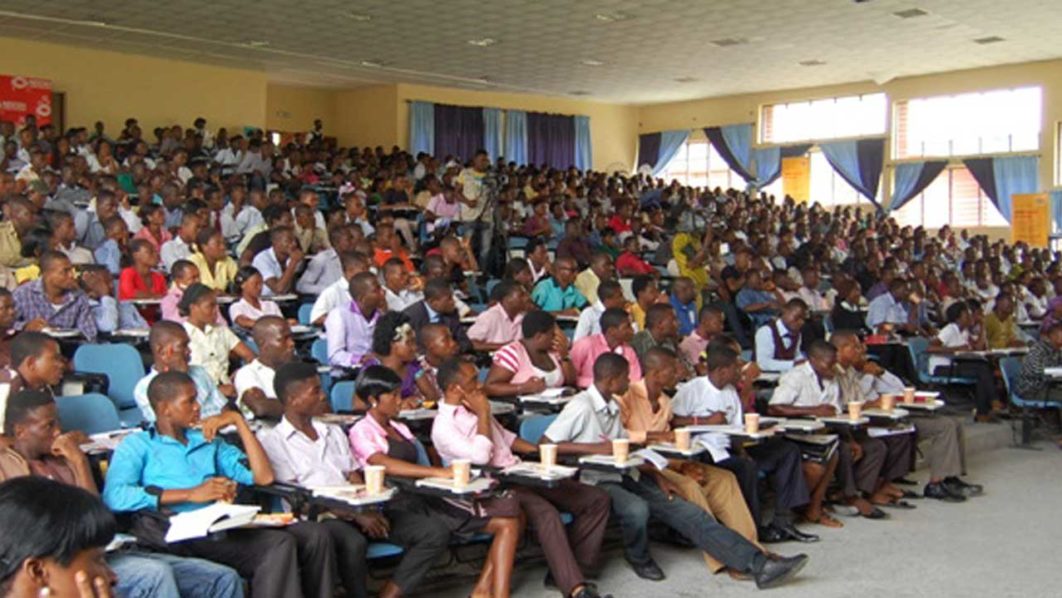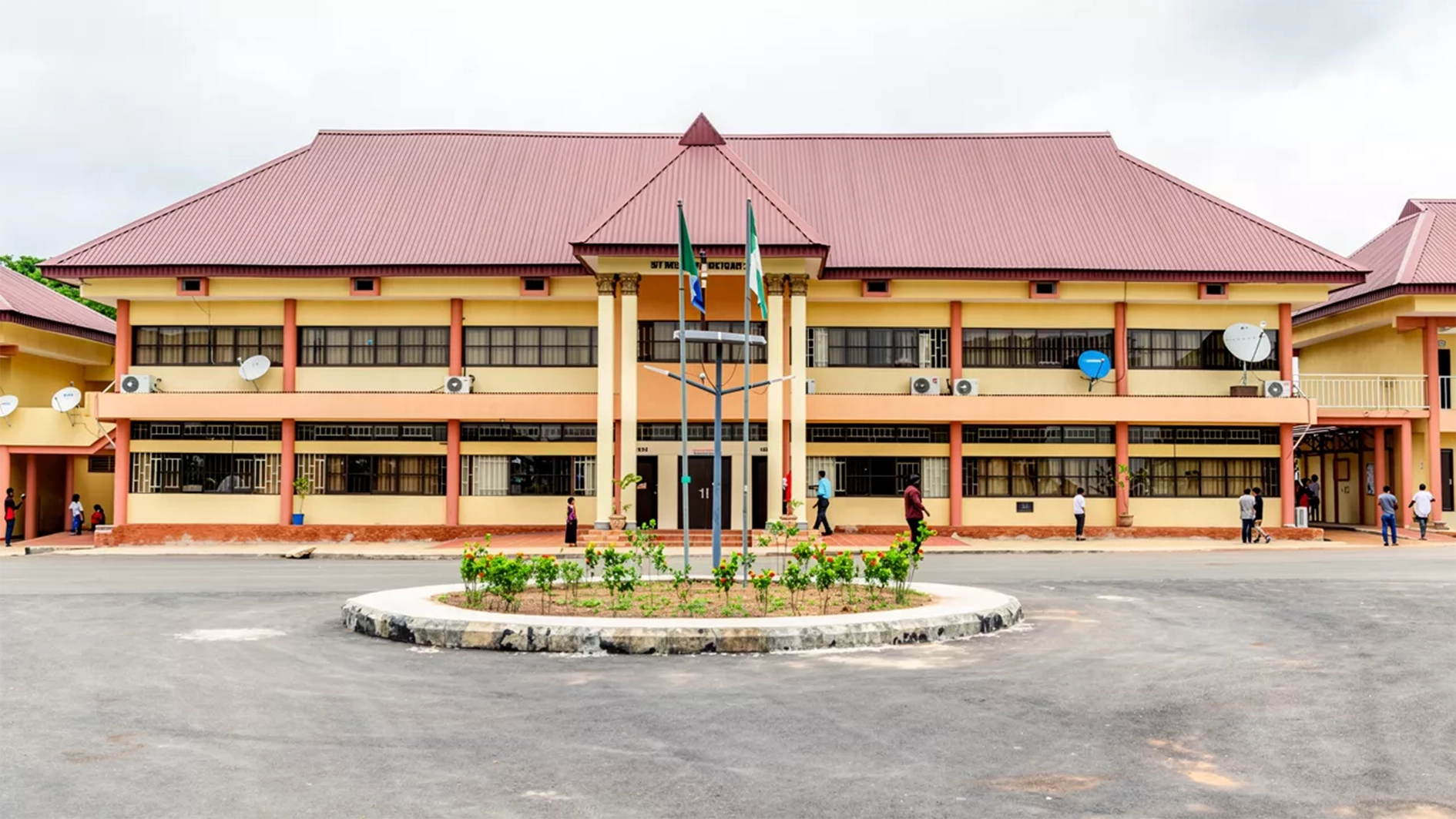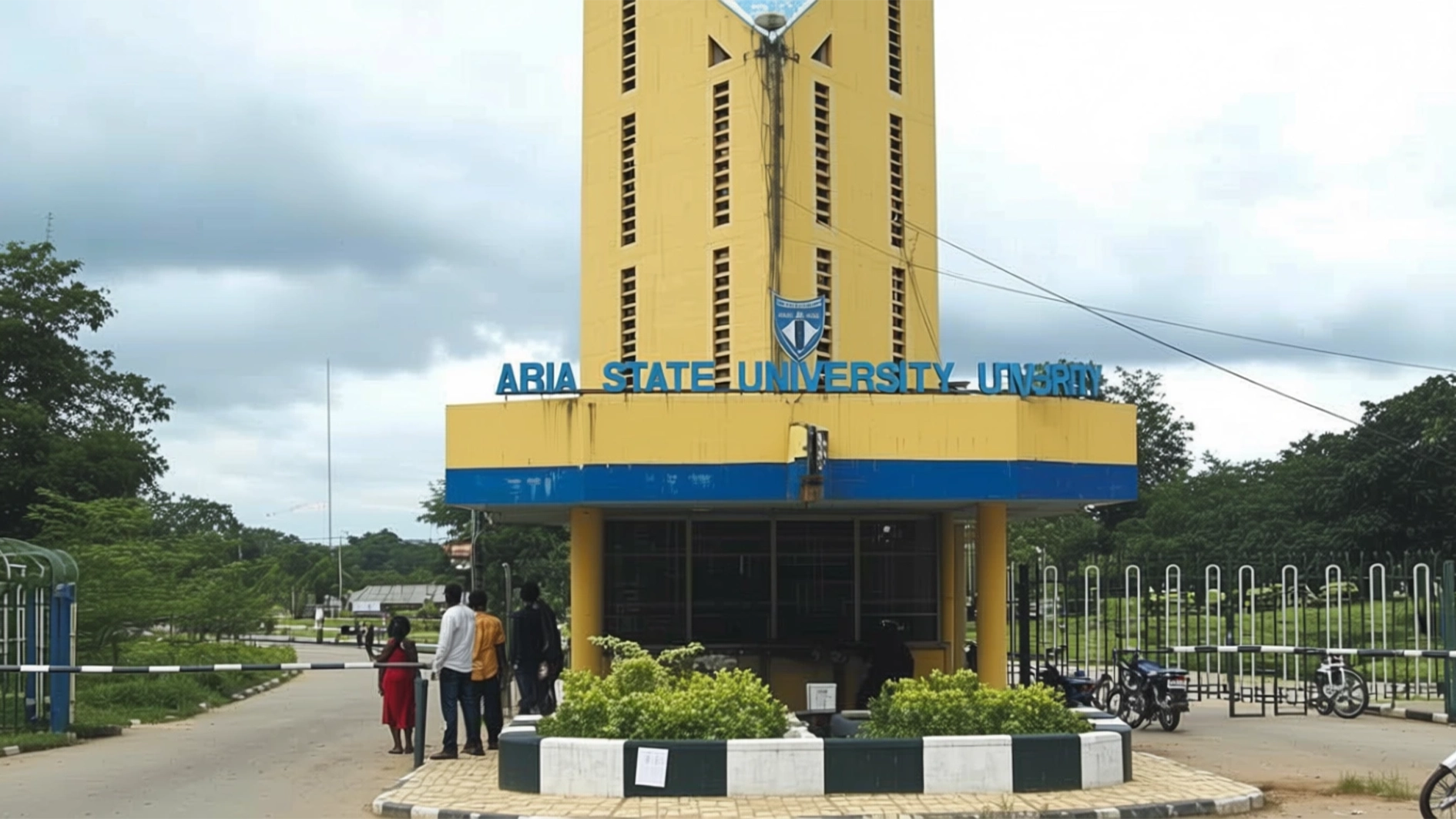
Infrastructural decay exists in almost all sectors of Nigeria. The same rot seeps through the academic system and has today touched the very soul of the university system of the country: its information and communication technology. In this report, Head, Education Desk, IYABO LAWAL, explores what makes a difference between government-owned universities and their private counterparts.
Since 2015, everything and anything that could go wrong in Nigeria’s education system has gone wrong and the whipping boy is Adamu Adamu, who has presided over a taciturn education ministry.
The rot in Nigeria’s education system goes beyond its dwindling standards, it sinks to the bottom of ICT infrastructures, both software and hardware, and that deficiency has become too telling with many Nigerian university students feeling the angst of arrested development occasioned by the COVID-19 crisis.
While many private universities have carried on with academic activities, and even conducted examinations, Nigeria’s (federal and state) government-owned universities have crumbled under the weight of the coronavirus pandemic. And the difference is that: private universities have the infrastructure for virtual (online) education while the public ones do not.
As far back as 2014, Local Area Network (LAN) is commonplace in the Nigerian tertiary institutions and can be a good platform for distributing and disseminating instructional materials.
In view of that, a 2014 study by researchers at the Covenant University proposed to improve the quality of academics through the online provision of learning resources based on Free and Open Source Software (FOSS); wired and wireless access to contents and availability of the system 24/7.
The system, according to the study’s authors, is based on third party software or FOSS called phpBB and Windows 2003 Server Active Directory Services. Both are installed and configured on an intranet. It has a discussion forum that is accessed through Hypertext Transfer Protocol using a web browser; and directory services for files/folders upload and download based on a set of privilege levels in Discretionary Access Control List (DACL) as a way of improving security.
The system led to the development of a virtual campus in one of the private universities and helped to improve the quality of teaching by making lecture notes available on the intranet, lecturer-student interaction, accessibility to teaching materials, and reduce student’s idle time.
“The system helps in no small measure to correct the problems plaguing the educational sector, such as examination malpractice, decline standards of education and cultism, as students are gainfully engaged in academic and social activities,” said the authors.
Experts noted that the creation of a virtual campus would enhance the level of e-participation, and e-readiness of the graduate for the employment market. In particular, it bridges the divide between the developed and the developing nations.
It is no wonder that Nigerian private universities now continue with their academic session despite the COVID-19 disruption. However, publicly-owned universities are largely dinosaur-years behind. Even the National Open University of Nigeria (NOUN) has cancelled all academic activities because it does not have the infrastructure to move its traditional functions online.
Adamu is not even losing sleep over the anathema that no Federal Government-owned university has moved its educational operations online. And state governments and their education commissioners are not pretending to have the online education system backbone.
In countries like the United States, the United Kingdom, South Korea, and China, among others, online university education has continued seamlessly. For one thing, stakeholders in the education sector in Nigeria argued that it would be unfair to compare Nigeria to developed countries. They are not further from the truth considering the hurdles that such a move would have to resolve.
They present a litany of stumbling blocks: epileptic power supply, erratic Internet network, and limited access and penetration of the Internet; universities being ill-equipped for online education because of lack of infrastructure for the purpose, and the poverty level of many students.
They said, and for good reasons, that most students in publicly-owned universities cannot afford a laptop, a smartphone, or a table.
Last June, the spokesman for the National Universities Commission (NUC), Ibrahim Yakassai, made a telling disclosure about the government-owned universities when he said: “Even if the (government-owned) universities have the capacity for online learning, most of the students don’t have smartphones. The issue is not only about the universities, but a national issue.”
There have been reports touting the so-called ingenuity of universities like the University of Ibadan (UI) and Lagos State University (LASU) conducting “online” academic activities.
But Yakassai pooh-poohed, saying: “Some universities claimed they are having lectures online since coronavirus distorted the learning system. As far as we know, most universities, especially government-owned, cannot give the lectures online, except for a few private universities.” He explained that the institutions might be doing “some interactions” via WhatsApp and Telegram.
“Online classes,” he explained, “are given in modules, and it requires expertise to develop the curriculum.”That is not all, according to Yakassai, as he pointed out: “Most students in public universities live in rural areas. Some do not have access to the Internet and the students will need to use applications such as Skype and Zoom for online learning.”
The grim reality, said the NUC, is that Nigerian students in government-owned universities would have to face the reality that by the time the COVID-19 crisis is resolved, they would have lost at least a semester or a session. Their academic learning is paused indefinitely.
“So, the students will start from where they stopped once school resumes,” the NUC spokesman added. “They have a syllabus to complete and they must complete it. The online lectures are different from face-to-face (lectures). It (online learning) has its own style. The internet must be sufficient. Students must have ‘browsing’ phones that can be used in their online classes.”
World over, it is admitted that online education involves a lot of expertise, especially on the part of the school and lecturers to set up instructional materials.
Thinking of a way forward while the public higher institutions are still hopelessly stuck in the present, the NUC official stated that tertiary institutions had been told to explore the possibility of online learning, looking at what they require to start in case the country faces another COVID-19-like situation in the future.
On April 2, Adamu met 237 vice chancellors, rectors, and provosts and the focus of that meeting was on virtual learning, since all tertiary institutions were on lockdown amid the coronavirus pandemic.
“We cannot be held down by COVID-19,” stated Adamu matter-of-factly. “We have to deploy all e-platforms to keep our universities, polytechnics, colleges of education, and other schools open.”
That “virtual learning environment” has remained a talk and a pipe dream. Adamu and the government he represents have been accused of paying lip service to improve basic infrastructure such as hostels and others that are critical on university campuses.
“There is no Nigerian (government-owned) university today that is operating any form or model of e-learning because of poor internet access, high bandwidth costs, and irregular power supply. On what infrastructure does the minister expect the online delivery to run?” the Academic Staff Union of Universities (ASUU) queried. The union should know better.
The Economist Intelligence Unit (The EIU) is the research and analysis division of The Economist Group. Its ‘preparing for disruption technological readiness ranking’ provides comprehensive medium and long-term forecasts for 82 of the world’s largest economies, including Nigeria.
Access to the internet, for which we look at internet usage and mobile phone subscriptions, the digital economy infrastructure, (looking at e-commerce, e-government, and cyber-security) and openness to innovation form the trinity of the ranking in which Nigeria ranked 79 (between 2013 and 2017) and 80 (between 2018 and 2022) among nations in terms of institutional e-readiness, the ability of a nation’s institutions to use ICT to achieve their mission and vision.
The most populous country on the African continent only ranked above Angola (81; 81) and Libya (81; 82). Nigeria’s e-readiness ranking highlights the need to seek innovative solutions to improve ICT usage.
Even the six-year experience of the University of Jos to implement an e-learning initiative in Mathematics with support from the Carnegie Corporation of New York, Hewlett Packard, and the World Bank-sponsored Science and Technology Education Post-Basic (STEPB) project did not provide any object lessons for the country.
The United Kingdom has a long tradition of innovation in education with its open university and distance learning being a model for many other open and distance learning (ODL) institutions.
Since the mid-90s, the UK has elaborated strategies and action plans to support ICT in education as seen in Ireland, Scotland, Wales, and England, making it easy for universities in those lands to switch almost seamlessly from physical presence to online academic activities and classes.
In fact, universities in developed schools have begun advertising for a new session via virtual touring of their schools. Nigerian public universities do not have such capacity yet.
According to a research study, ‘Challenges of e-learning in Nigerian university education based on the experience of developed countries,’ what Nigerian universities can learn from the experiences of developed countries on e-learning could be summarised into four items: funding, electricity, awareness/training, and motivation.
“More fingers are pointing to the Federal Government of Nigeria on these issues,” said authors of the study. Therefore, the government policies and programmes of e-learning in Nigerian university education should be financially supported by substantial public funding. On the issue of funding, the Federal Government should take a bold step to yield to the recommendation of the UNESCO which prescribe 26 per cent of the annual budget for education,” they added.
Some stakeholders, in their assessment of the sub-sector, said public universities lack the infrastructure, funding, flexibility and personnel to make a switch to full online teaching at short notice.
They noted that private universities, compared to their public counterparts, are more modern in terms of laboratory facilities, ICT infrastructure and other teaching equipment, and are more flexible in their governance and administrative structures.
The Vice Chancellor, Technical University, Ibadan, Prof. Ayobami Salami, said it is important that Nigerian tertiary institutions invest in technologies to meet up with the challenge.
“We cannot be talking about industrial revolution if we don’t invest. By now, we should be able to deploy our learning management system in such a way that students can learn from home. Let’s not forget that the clock does not stop ticking …. Why then should learning stop because of the pandemic? By the time the pandemic stops, we are coming back to where we stopped, whereas foreign institutions have gone to achieve the necessary.
“It is not magic; we must put a lot of machinery in place. We need to create an enabling environment within our tertiary institutions, the same phone used by students and lecturers will simply serve this function. Because the environment has not been created, students don’t see the need to use their phone beyond social media activities, Prof Salami added.
On his part, the Vice Chancellor, University of Ibadan, Prof. Idowu Olayinka, emphasised the need for training and change of mindset on the part of lecturers.
“We need to invest in infrastructure – perhaps lectures will be delivered through Skype or teleconferences. Lecturers can even upload notes online and students will download for assignment.
“It requires training and retraining the lecturers to be more familiar with technologies. Some professors are ‘computer immigrants.’ So, they need to be updated so that in this period of the pandemic, a lot can still be achieved in our schools,” he said.






